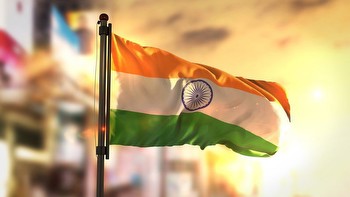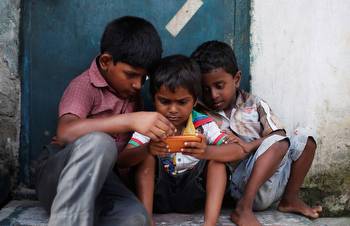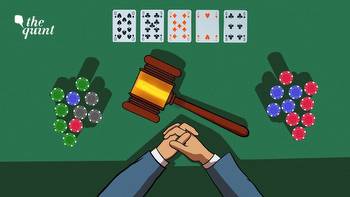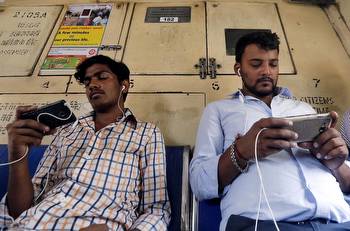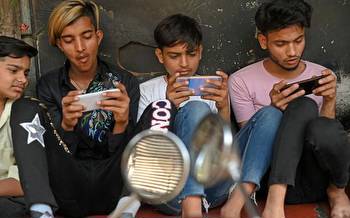Online Gaming and its regulations

Of the numerous things that the pandemic has changed in our lives, an obvious one is the way we entertain ourselves. Amid the proliferation of OTT channels and the rise in viewing hours what has gone unnoticed is the burgeoning use of online gaming. The average time spent on online gaming has gone up almost 65 per cent from pre-Covid levels. More than 43 crore people have spent time on virtual gaming. Online gaming is posing a new set of challenges and the need of the hour is a robust and comprehensive regulatory mechanism.
In News:A task force set up by the Ministry of Electronics and Information Technology has prepared a final report of its recommendations to regulate the online gaming industry in India.
Placing it in Syllabus:Governance, Science and Technology
Static Dimensions
- About Online Gaming
- Need for regulation of online gaming
- Online gaming market in India
Current Dimensions
- More on news
- Need for a central-level law
- Steps taken by government
- The recommendations of the task force
- Ministry that will be in charge of the regulation
- Task force say about offshore betting apps
- Issues with regulation of online gaming
Content
More on news
- An inter-ministerial task force, set up by the Ministry of Electronics and Information Technology (MeitY) to propose contours of a national-level legislation to regulate online gaming, has proposed the creation of a central regulatory body for the sector, clearly defining what games of skill and chance are, and bringing online gaming under the purview of the , among other things.
- The task force, set up by MeitY in May 2022, included the CEO of government think tank Niti Aayog, and secretaries of ministries including IT, Home, Finance, Information and Broadcasting, and Consumer Affairs, among others.
- The task force is understood to have prepared a final report of its recommendations and submitted it to the IT Ministry.
About Online Gaming
- There are three types of online gaming.
- The first is e-sports. These are video games which, in the 1990s, were played privately or on consoles in video game shops but are now played online in an organised way between professional players, individually or as teams.
- The second is fantasy sports. These are games in which you choose a team of real sports players from different teams and win points according to how well the players perform in real life.
- Finally, there are online casual games which could be skill-based where the outcome is predominantly influenced by mental or physical skill or based on chance, where the result is strongly determined by some randomised activity, such as rolling a dice.
- A game of chance may be considered as gambling if players wager money or anything of monetary value.
Online gaming market in India
- The revenue of the Indian mobile gaming industry is expected to exceed $1.5 billion in 2022, and is estimated to reach $5 billion in 2025.
- The industry in the country grew at a CAGR of 38% between 2017-2020, as opposed to 8% in China and 10% in the US.
- It is expected to grow at a CAGR of 15% to reach Rs 153 billion in revenue by 2024. India’s percentage of new paying users (NPUs) in gaming has been the fastest growing in the world for two consecutive years, at 40% in 2020 and reaching 50% in 2021.
- According to a report by EY and FICCI, transaction-based games’ revenues grew 26% in India, with the number of paying gamers increasing by 17% from 80 million in 2020 to 95 million in 2021.
Need for regulation of online gaming
- Lack of regulatory oversight-This flourishing industry suffers from lack of regulatory oversight.
- Online gaming falls in a regulatory grey area and there is no comprehensive legislation with respect to its legality, or its boundaries with gambling and betting even as the applicable tax rate is being debated in relevant circles.
- Addictions-A large number of people are developing a strong dependence on online gaming. This addiction is destroying lives and devastating families.
- Young boys and girls are trapped in compulsive gaming, many spending as much as six to eight hours per day playing online games.
- Psychologists have opined that the opportunity cost of this is immense as the impact on health is growing with each passing day.
- This addiction is also said to be causing near-sightedness in our youth.
- Privacy issues-Inadvertent sharing of personal information can lead to cases of cheating, privacy violations, abuse, and bullying.
- Economic prospects-A well-regulated online gaming industry presents compelling advantages in terms of economic benefits too.
- This industry is expected to generate revenues in excess of Rs 29,000 crore in 2025 with over 65.7 crore users.
- It is estimated that more than 15,000 direct and indirect jobs will be created.
- Betting and gambling-Online games based on the traditional ludo, arguably the most popular online game in India, have run into controversy, and allegations of betting and gambling.
- Negative externalities-There have been a number of reported incidents of people losing large sums of money on online games, leading to suicides in various parts of the country.
Need for a central-level law
- Online gaming so far has been a state subject, but state governments have said they find it extremely difficult to enforce certain rules like geo-blocking certain apps or websites within the territory of their state.
- There is a concern that rules passed in one state are not applicable in another, which has caused inconsistency in how the online gaming industry is regulated in the country.
- State governments also do not have enough blocking powers like the Centre to issue blocking orders for offshore betting sites.
Steps taken by government
- The Centre, in an advisory to states, has laid out useful dos and don’ts to educate parents and teachers.
- Various high courts have nudged state governments to regulate the virtual gaming landscape.
- Games based on skills are allowed in most parts of the country while games of chance are in the ambit of gambling, treated as immoral and prohibited in most parts of the country.
- As betting and gambling is a state subject, different states have their own legislation. Every state in India, except Goa, Sikkim, and the Union Territory of Daman explicitly prohibits any sort of gambling, betting or wagering on games of chance.
- Assam, Andhra Pradesh, Nagaland, Odisha, Tamil Nadu and Telangana have placed restrictions on games of skill as well.
The recommendations of the task force
- A central-level law for online gaming should apply to real money and free games of skill, including e-sports, online fantasy sports contests, and card games among others.
- Casual games with no real money element in the form of stakes may be kept outside the scope of such rules, unless they have a high number of users in India, or permit the publication or transmission of information in the nature of any inappropriate content like violence, nudity, addictive content or misleading content.
- Regulatory body-It has also recommended creating a regulatory body for the online gaming industry, which will determine what qualifies as a game of skill or chance, and accordingly certify different gaming formats, seek compliance and enforcement.
- A three-tier dispute resolution mechanism, similar to that prescribed under the Information Technology Rules, 2021 for online streaming services, consisting of a grievance redressal system at the gaming platform level, self regulatory body of the industry, and an oversight committee led by the government should be put in place for online gaming.
- Legal entity incorporated under Indian law-Any online gaming platform – domestic or foreign– offering real money online games to Indian users will need to be a legal entity incorporated under Indian law.
- These platforms will also be treated as ‘reporting entities’ under the Prevention of Money Laundering Act, 2002, and will be required to report suspicious transactions to the Financial Intelligence Unit-India.
Ministry that will be in charge of the regulation
- The task force has suggested that MeitY may act as the nodal ministry to regulate online gaming, except for the e-sports category on which the Department of Sports can take the lead.
- The scope of the regulation by MeitY should only cover online gaming, that is, games of skill, and the issues of online betting and gambling being games of chance in nature should be excluded from its scope, the task force is learnt to have recommended.
- Certain other aspects of online gaming such as advertisements, code of ethics relating to content classifications etc. could be regulated by the Information and Broadcasting Ministry, while the Consumer Affairs Ministry can regulate the sector for unfair trade practices.
Task force say about offshore betting apps
- On the aspect of prohibiting games of chance, gambling websites or apps being played online, the proposed Digital India Act can include it in the list of prohibited user harms that will not be permitted, the task force has said.
- Many offshore betting and gambling websites which are illegal in India have become popular among Indian users.
- Despite being based outside India, some of these websites are widely advertised in Indian newspapers and TV channels, and allow users to transact in Indian rupees through popular digital payment modes such as internet banking, UPI and popular wallets.
Issues with regulation of online gaming
- States do not have “legislative competence” to prohibit games of skill and that only games of chance can be regulated for gambling and betting.
- An outright ban may not entirely curtail the playing of such online games, with or without stakes.
- The Karnataka High court also held that playing online games could help in building the character of an individual and enjoying online gaming could also fall within the contours of freedom of expression and the right to liberty and privacy guaranteed under the constitution.
- Violation of fundamental rights of trade and commerce.
- Shifting of users to grey or illegal offshore online gaming apps not only results in loss of tax revenue for the State and job opportunities for locals but results in users being unable to avail remedies for any unfair behaviour or refusal to pay out winnings.
- Law being manifestly arbitrary and irrational insofar as it did not distinguish between two different categories of games, i.e. games of skill and chance.
Wayforward
- There is a need to build checks and balances to prevent the youth from becoming pathological gamers.
- There is an urgent need to regulate this industry suitably. The government should ensure that KYC norms are strengthened.
- Each game should follow a well-established age-rating mechanism and minors should be allowed to proceed only with the consent of their parents OTP verification on Aadhaar could potentially resolve this.
- No in-game purchases should be allowed without adult consent and wherever possible, the in-game chat option should be disabled.
- Gaming companies should proactively educate users about potential risks and how to identify likely situations of cheating and abuse.
- They should remove the anonymity of participants and build a robust grievance handling mechanism.
- A Gaming Authority at the central government should be created while various forms of self-regulation are encouraged for the industry.
- This authority could be made responsible for the online gaming industry, monitoring its operations, preventing societal issues, suitably classifying games of skill or chance, overseeing consumer protection, and combatting illegality and crime.
Mould your thoughts
Q.Online gaming is exponentially growing in the country and is creating a new set of challenges. Discuss the need for regulation of online gaming and steps taken by the government in this regard.(250 words)
Approach to the answer
- Introduction about online gaming
- Growth and potential of online gaming
- Challenges of online gaming
- Need for regulations
- Steps taken by the government, including task force recommendations
- Wayforward and Conclusion.








